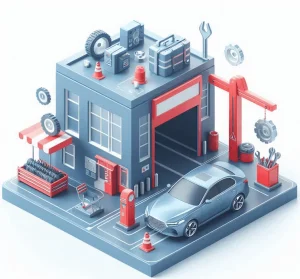Table of Contents
Summer is upon us, and with it comes the excitement of hitting the open road and embarking on adventurous journeys. However, it’s important to remember that summer driving has unique challenges. The rising temperatures, increased traffic, construction, and summer festivities can cause road hazards and distractions that may lead to accidents.

As a responsible driver, ensuring proper precautions is critical to keeping safe during summer. To help you navigate the challenges of summer driving, we’ve gathered five essential tips to remember while driving on scorching hot sunny days.
From maintaining your vehicle to staying alert and aware of your surroundings, every step you take towards being a safer and better driver makes a difference. Read on to learn more about the challenges of summer driving, so you can get behind the wheel with complete confidence that you’re ready to take on anything.
Remember that selling your car in Dubai is easy if the vehicle is in good condition.
1- Check Your Car’s Fluid Levels
Summer is the perfect time for a long drive with friends or family. However, ensuring your car is in good shape to handle the summer heat before you hit the road is essential. One of the most important things to check before you head out is your car’s fluid levels.
This includes engine oil, brake fluid, transmission fluid, coolant, and power steering fluid. Without adequate levels of these fluids, your car may not run smoothly, leading to potential breakdowns in the middle of your trip.
Checking your car’s fluid levels is a quick and easy job that can save you a lot of trouble on the road. So, before you embark on your summer adventure, please take a few minutes to make sure your car is running smoothly by checking its fluid levels.
Keep in mind that you can trade your car online quickly and safely.
2- Change Your Oil When Recommended
Taking care of your car during the hot summer months is very important. One of the most crucial things you must do is change your oil when recommended. Your engine oil acts as a lubricant, helps to cool your engine, and removes any dirt or debris collected during use.
Failing to change your oil regularly can cause your engine to overheat, reduce fuel efficiency, and cause unnecessary wear and tear on your vehicle. So, check your car’s manual for the recommended mileage interval between oil changes and set a reminder to get it done on time. It’s a small step to ensure a smooth driving experience this summer!
3- Wear Sunscreen and Sunglasses While Driving
The sun can be very harsh during summer, making driving uncomfortable and sometimes even dangerous. A straightforward way to protect yourself while driving is to wear sunscreen and sunglasses.
Sunburned skin can be painful and distracting, making staying focused on the road harder. Additionally, the bright sun can cause glare and affect your vision, making it much harder to see the road and other drivers around you.
So before you hit the road this summer, apply some sunscreen and wear sunglasses to keep yourself safe and comfortable on the road!
4- Have Your A/C Serviced for Maximum Efficiency
As the temperature rises, most of us depend on our air conditioning units to relieve the scorching heat. But have you ever considered that your A/C might not work as efficiently as possible?
It may surprise you that regular A/C maintenance can make all the difference in your summer driving experience, not to mention saving you considerable money on unnecessary repairs down the road.
To ensure maximum efficiency from your A/C, have it professionally serviced at least once a year. This will help you stay calm and prevent significant issues that could lead to costly repairs. Add this essential step to your summer drive preparation checklist, and stay cool as a cucumber throughout the season.
5- Make Sure Your Tires Are Properly Inflated
Before hitting the road, remember that high temperatures can affect your car’s performance in ways you might never expect.
For example, heat tends to have a degrading effect on rubber which can affect your wheels. You should always ensure your tires are properly inflated before heading out. When tires are not inflated correctly, it can affect your car’s handling and lead to a flat tire.
To prevent any issues, use a tire gauge to check for the correct pressure level (which can be found in your car’s owner’s manual or inside the driver’s side door).





More Stories
Powerful Secrets Every Cars Mechanic Knows for a Smoother, Happier Drive
Transform Your Ride: Discover the Joy of Automotive Refinishing Mastery
Celebrate Automotive Beauty: Proven Auto Restoration Parts for Brilliant Results